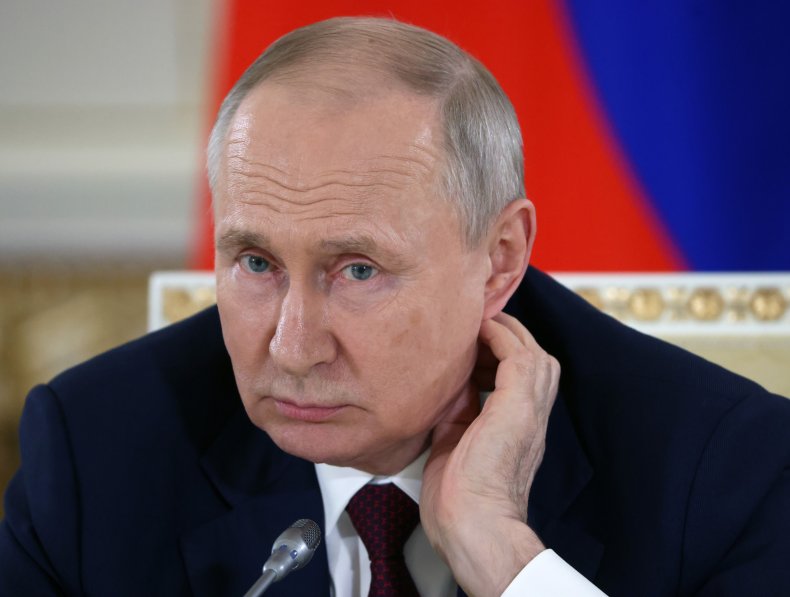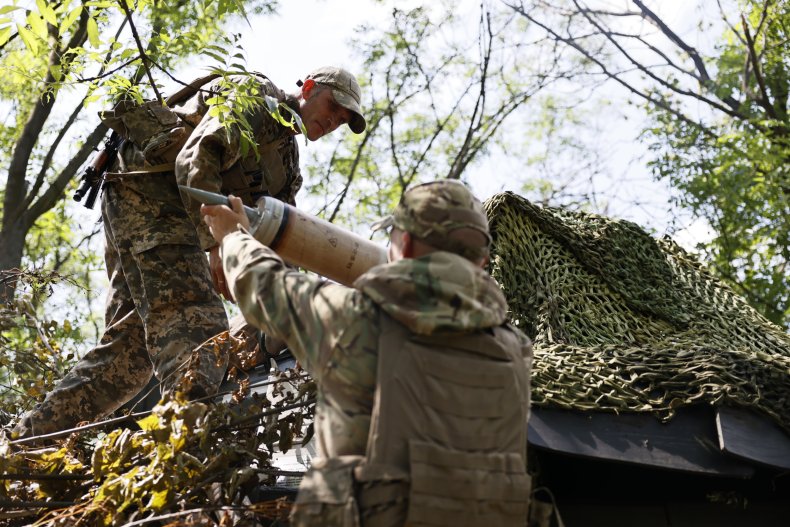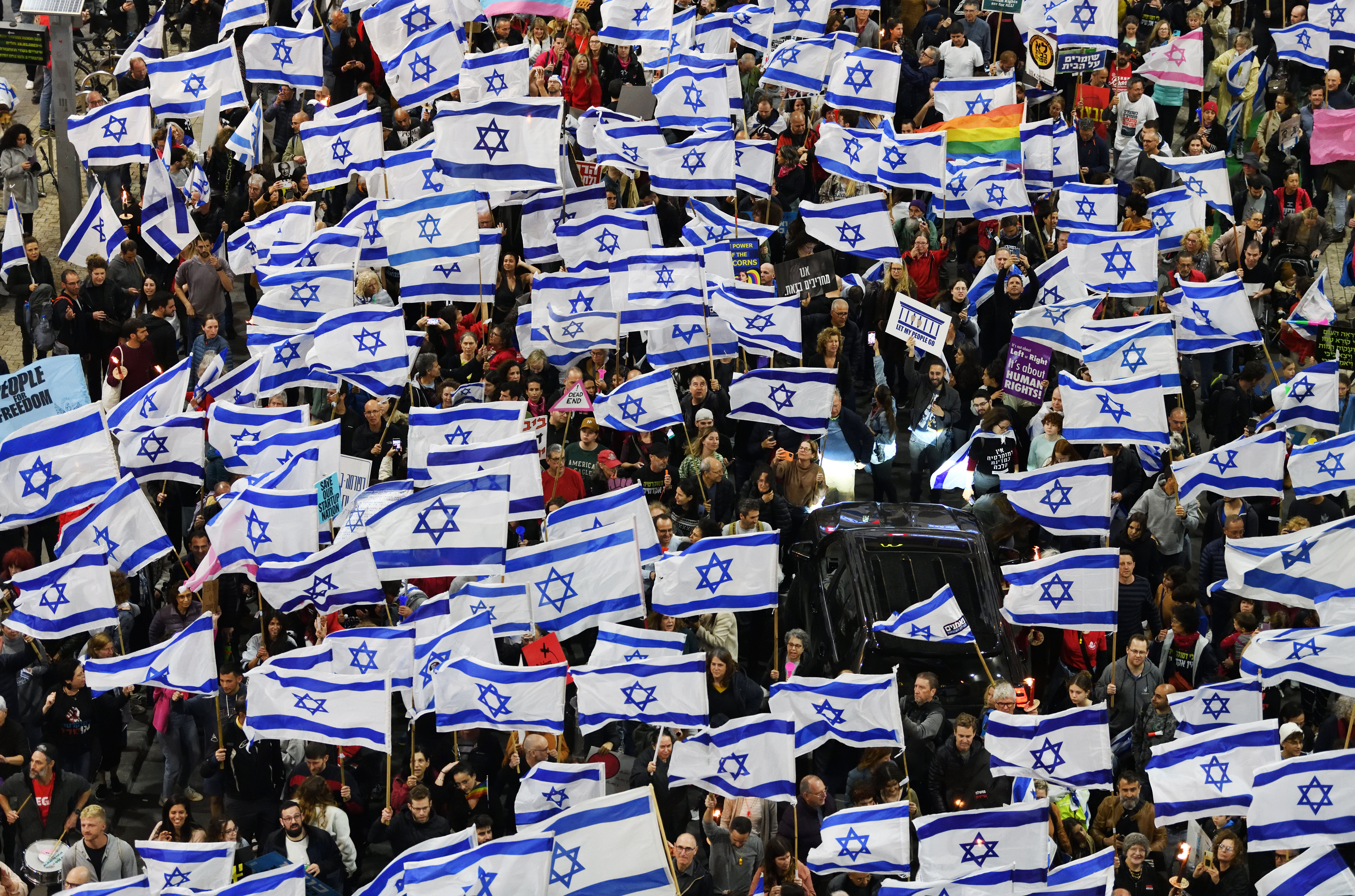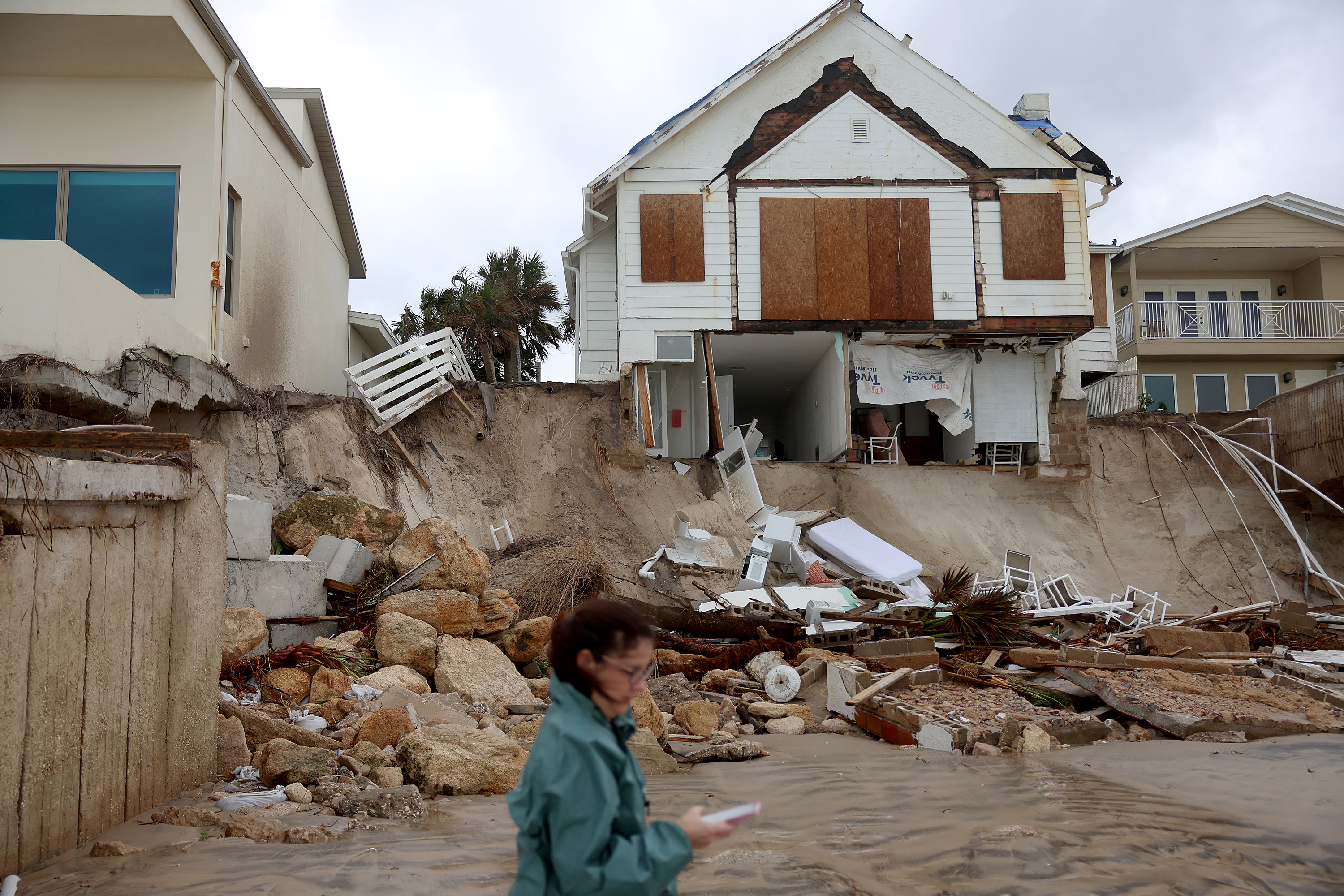Recent weeks have seen several high-profile spats between Russia and its key backers of the disastrous war on Ukraine, as President Vladimir Putin digs in to try to outlast Kyiv and its democratic partners.
Since mid-July, the Chinese Embassy in Moscow has condemned "brutal and excessive law enforcement by Russia" after several of its citizens were detained at a border crossing. The Iranian Foreign Ministry has summoned Moscow's ambassador over a Russian-endorsed statement it said threatened Middle Eastern stability. And North Korean-aligned hackers have been accused of breaching computer networks belonging to a major Russian missile developer.
The incidents come at a sensitive time for the Kremlin. Its battered forces in Ukraine are fighting against Kyiv's long-awaited counteroffensive, Ukraine and its Western partners are looking to leverage Russia's renewed Black Sea blockade for more support in the so-called Global South, and nearly 40 nations—among them China—recently met in Saudi Arabia to discuss Kyiv's proposed peace plan.
At home, Putin is still seeking to calm nerves in Kremlin power circles after the abortive mutiny by Wagner Group mercenaries in June. Russia's president is also making the conscription process more robust and expansive amid high casualties in Ukraine, while his military and security officials grapple with continued guerrilla and drone attacks within Russian borders.

Moscow has few friends it can count on. Still, none of those either actively or tacitly backing the full-scale invasion of Ukraine appear set to abandon Putin, despite the recent tense incidents.
Belarusian President Alexander Lukashenko, for instance, is indebted to Putin and shows little sign of breaking from the Kremlin, even while avoiding direct involvement in the war to the south. Lukashenko has agreed to house exiled Wagner Group fighters and Russian tactical nuclear weapons, and both steps are interpreted abroad as an expression of his continued loyalty to Moscow.
Iran has aligned with Russia, and its Shahed kamikaze drones have become some of the most feared and hated weapons among Ukrainians throughout the 18 months of war. North Korea, too, is sending ammunition, though Pyongyang traditionally is more concerned with Beijing than Moscow.
Newsweek contacted the Russian Defense Ministry by email to request comment.
Russia's Fairweather Friends
China carries the most weight of all of Russia's partners. Beijing has tried to frame itself as a neutral arbiter in Ukraine despite the "friendship without limits" declared by Chinese and Russian leaders.
China also remains Ukraine's largest trading partner. But since the war began, chummy public meetings between Russian and Chinese leaders, President Xi Jinping's longtime refusal to even speak with Kyiv, a toothless Chinese peace proposal, and deepening economic ties—reportedly including the export of goods that could be used by Russian soldiers—have all underlined China's pro-Kremlin stance.
China has repeatedly refused to condemn Russia's brutality in Ukraine, even offering a relatively soft response after its consulate in the Ukrainian port city of Odesa was damaged in Russian strikes last month.
"The incident with the Chinese tourists, I wouldn't say that it's so important," Oleg Ignatov, the Crisis Group's senior analyst for Russia, told Newsweek when speaking about the recent border spat between Moscow and Beijing. "China is, of course, an ally. It's a very important partner for Russia. It's a strategic partner."
Though Beijing is unlikely to suddenly abandon its Russian friends, Ignatov said, Chinese involvement in the Saudi summit can be expected to be a concern in Moscow, which through the course of the war has become more reliant on its giant neighbor's largesse.
"China's participation was very important because China is a Moscow ally," Ignatov explained. "The fact that China is ready to discuss this approach without Russia is of course a signal to Moscow that its position is more fragile than Moscow is thinking."
Moscow's brief disagreement with Iran over the Persian Gulf islands of Abu Musa, Greater Tunb and Lesser Tunb—claimed by both Tehran and the United Arab Emirates but held by Iran since 1971—is likewise no indication of an impending diplomatic crisis, Ignatov said. The row erupted after Moscow signed a Gulf Cooperation Council statement calling for renewed diplomacy to settle the ownership dispute.
"It was it was a diplomatic mistake, and I don't think it was intentional," Ignatov said of the letter. "Iran is also going to be a strategic partner," he added. "The cooperation between Russia and Iran is growing."
Ignatov noted the opportunistic nature of this friendship of convenience, as opposed to a long-term alignment like the Moscow-Beijing ties.
As a result of its nuclear program, Tehran is also somewhat isolated on the international stage. Iran has defied international sanctions and Western demands to curtail its activities and rejoin the Joint Comprehensive Plan of Action nuclear deal, which collapsed after former President Donald Trump withdrew from the accord.

Its growing relationship with Russia gives Iran a valuable counterweight to the U.S. and Israel, a stronger position in Syria and reported access to advanced Russian military hardware like the Su-35 fighter jet.
Russia's cooperation with North Korea—based on Pyongyang's willingness to provide munitions—is arguably the most tentative of its post-invasion friendships. "It needs to find ammunition anywhere, somewhere," Ignatov said. "If North Korea is ready, [Russia] has to do it because it doesn't have a choice."
Reuters reported this week that North Korean-linked hackers secretly installed digital backdoors into systems at NPO Mashinostroyeniya, a Russian rocket design bureau responsible for a significant chunk of Moscow's anti-ship ballistic missile arsenal. "If it's true, it's a very big thing," Ignatov said. "It's not like allies usually behave with each other."
He continued: "If there was not this war between Russia and Ukraine, Iran and North Korea would never have played such a big role for Russia."








